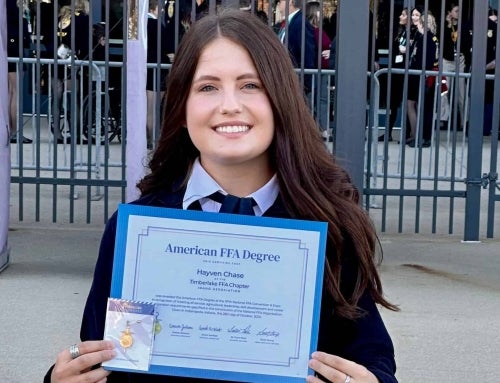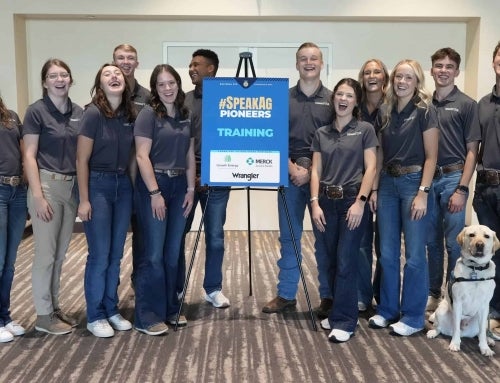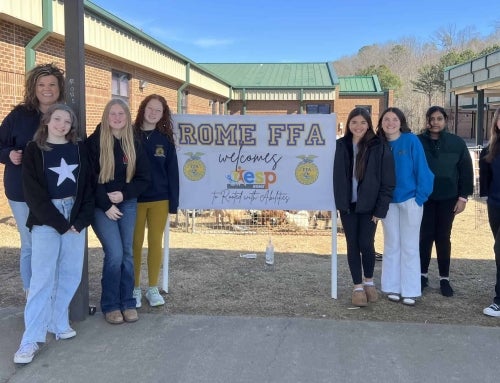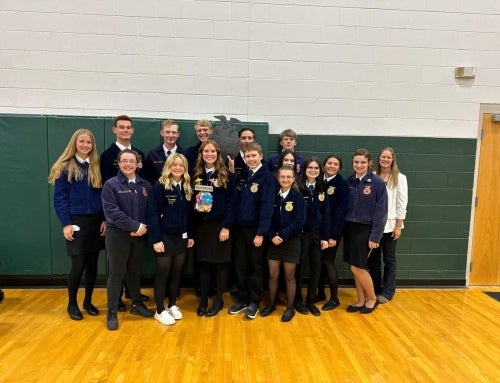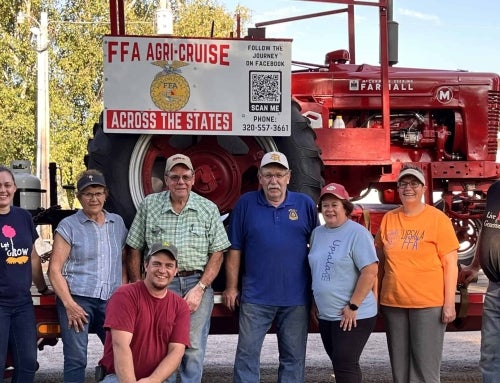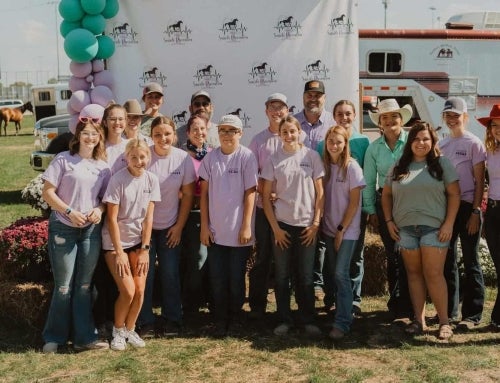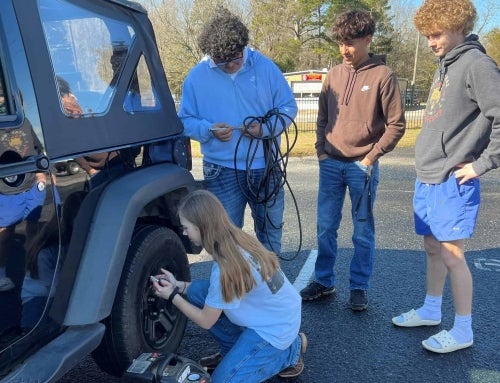
FFA advisor and teacher Jeff McKinney (right) celebrates with Kevin Ramirez (left) after he earned his credential in residential construction skills.
FFA members at the Haleyville Center of Technology in Haleyville, Ala., aren’t just reading about construction — they’re putting their learning into practice by constructing a tiny house in the school’s shop.
Through their courses, members can also prepare for and take the Home Builders Association of Alabama’s Residential Construction Skills test, which allows them to graduate with a certification that gives them a leg up on fellow job seekers in the construction industry.
“Our ultimate goal is that when they come out of school, they aren’t starting out at entry-level pay, but at a slightly higher level that will make them more likely to go into construction and stay in the industry,” says FFA advisor and teacher Jeff McKinney.
McKinney has expanded the Haleyville Center of Technology’s construction program throughout the seven years he’s worked there. An FFA Alumnus and 2024-25 National Teacher Ambassadors for FFA Mentor, McKinney teaches construction framing, finishing and wiring, in addition to agriscience and animal and dairy science.
Learning to Do and Doing to Learn
When students sign up for one of the school’s construction classes, they’re also signed up for the construction test prepared by iCEV and approved by the Alabama Home Builders Association, and they gradually work through a series of online learning modules.
As students tackle the online learning component, they work together to construct and finish a tiny house in class. They build it from the ground up, learning about safety first, then forming a foundation, floors, walls, rafters and the roof. They move on to finish the interior space and install cabinetry, fixtures and wiring.
According to McKinney, this hands-on approach helps students understand what they’re learning in the study modules. “If you don’t know what a rafter is or what it looks like, you can read about it all day, but you won’t fully understand it,” he adds.
FFA members also compete in a variety of construction-related competitions at the school, where they have a chance to advance to county, district, state and even national competitions. All of these opportunities ultimately help students and members gain the skills and confidence needed to pass their certification test — and the school’s FFA chapter has already seen several successes.
“One member was able to become a subcontractor after he graduated and runs a crew of framers,” McKinney says. “Another went through our wiring class and was brought on by a business in Huntsville as a maintenance supervisor, where he’s now doing electrical work.”
Your Next Step
Connecting with advisors like McKinney is a great way to share ideas, access additional resources and receive mentorship. Find a full list of 2024-25 National Teacher Ambassadors for FFA here.



